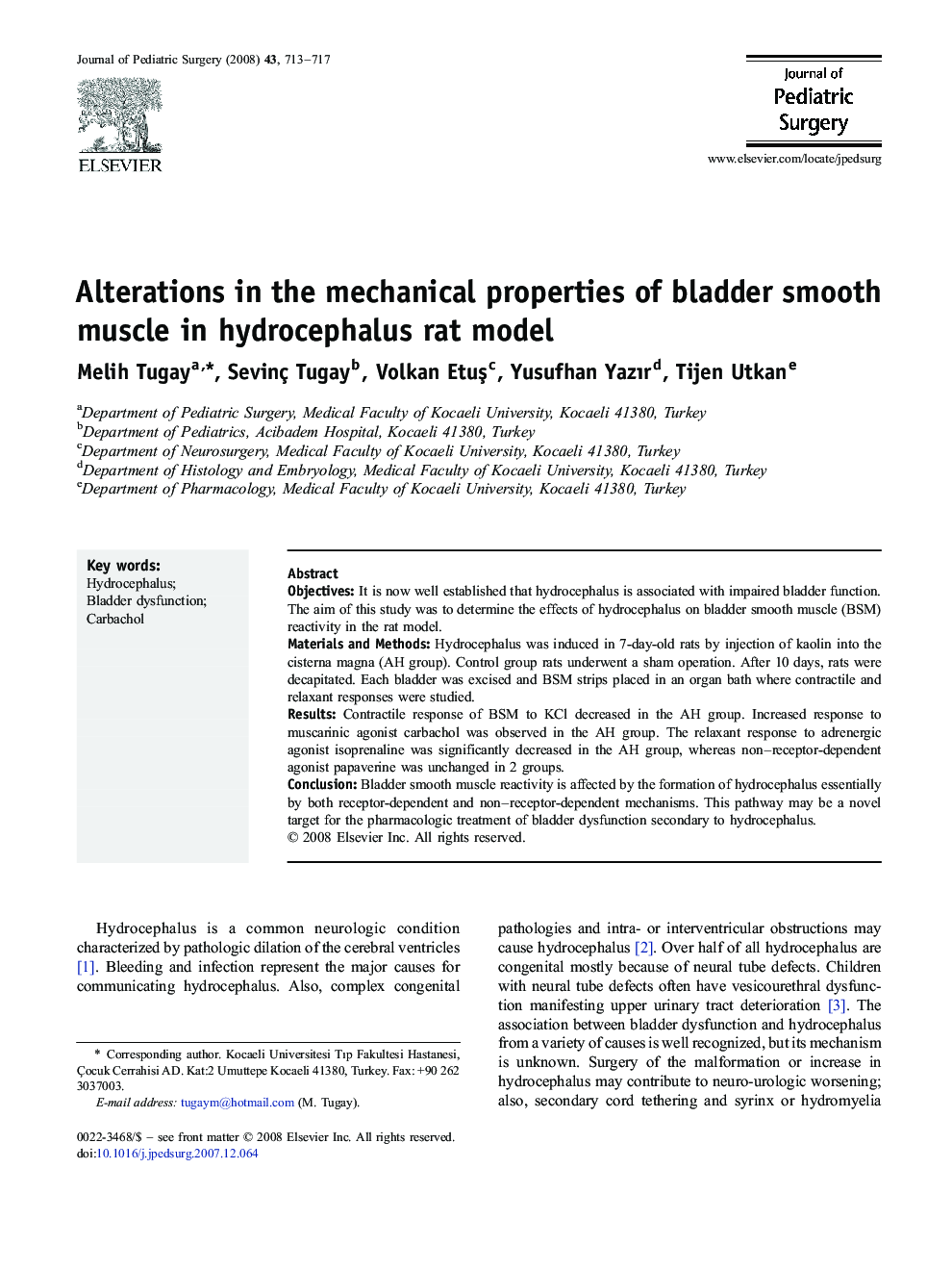| Article ID | Journal | Published Year | Pages | File Type |
|---|---|---|---|---|
| 4159433 | Journal of Pediatric Surgery | 2008 | 5 Pages |
ObjectivesIt is now well established that hydrocephalus is associated with impaired bladder function. The aim of this study was to determine the effects of hydrocephalus on bladder smooth muscle (BSM) reactivity in the rat model.Materials and MethodsHydrocephalus was induced in 7-day-old rats by injection of kaolin into the cisterna magna (AH group). Control group rats underwent a sham operation. After 10 days, rats were decapitated. Each bladder was excised and BSM strips placed in an organ bath where contractile and relaxant responses were studied.ResultsContractile response of BSM to KCl decreased in the AH group. Increased response to muscarinic agonist carbachol was observed in the AH group. The relaxant response to adrenergic agonist isoprenaline was significantly decreased in the AH group, whereas non–receptor-dependent agonist papaverine was unchanged in 2 groups.ConclusionBladder smooth muscle reactivity is affected by the formation of hydrocephalus essentially by both receptor-dependent and non–receptor-dependent mechanisms. This pathway may be a novel target for the pharmacologic treatment of bladder dysfunction secondary to hydrocephalus.
